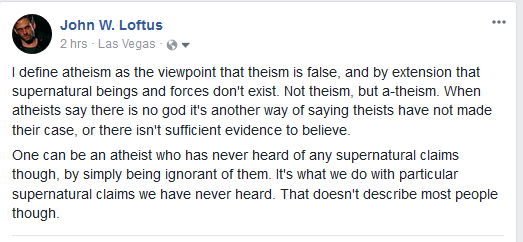I'm reviewing Mark Mittelberg's book Confident Faith: Building a Firm Foundation for Your Belief (2013)—which won the Outreach Magazine's 2014 apologetics book of the year award. So far his book has been flying under the atheist radar. I aim to rectify that with a few posts offering my thoughts and criticisms of it. [See the "Mark Mittelberg" tag below for others]
In Part One of his book the author discusses Six Paths of Faith, which represent the "criteria" readers are using to base their beliefs on, the goal of which is to get readers to reassess their faith. Hopefully though, readers don't do as Mittelberg did, since when he decided to reassess his faith due to the questioning of a college professor, he decided not to truly reassess it. In his words: "My Christian conclusions were, I'm convinced, correct, so I needed to go back and shore up the foundations underlying my faith." (p. 21) If that's what reassessing one's faith is about, Muslims would end up shoring up their faith as would Hindus, and almost everyone else. That's because, as Warren Buffett tells us, “What the human being is best at doing is interpreting all new information so that their prior conclusions remain intact.” [Quoted in Confirmation Bias: Why You Should Seek Out Disconfirming Evidence.] In fact, it's worse than that. The brain treats questions about beliefs just exactly like they're physical threats to its host. This means you must really want to know the truth in order to find it. You must force your brain to go against what it tells you to do. The only way to properly reassess one's childhood indoctrinated faith is to treat it as an outsider would, a non-believer, by requiring--no demanding--nothing less than sufficient objective publicly verifiable evidence for your faith, the same kind of evidence you would require of any ancient Chinese religion that made a claim about a virgin giving birth to an incarnate god. Think about this. What would it require? I've said agnosticism is the default outsider perspective, but one could also say if you're a Christian, treat your faith as if you're non-Christian, if you're a Muslim, treat your faith as if you're a non-Muslim, and so forth.
In Part One of his book the author discusses Six Paths of Faith, which represent the "criteria" readers are using to base their beliefs on, the goal of which is to get readers to reassess their faith. Hopefully though, readers don't do as Mittelberg did, since when he decided to reassess his faith due to the questioning of a college professor, he decided not to truly reassess it. In his words: "My Christian conclusions were, I'm convinced, correct, so I needed to go back and shore up the foundations underlying my faith." (p. 21) If that's what reassessing one's faith is about, Muslims would end up shoring up their faith as would Hindus, and almost everyone else. That's because, as Warren Buffett tells us, “What the human being is best at doing is interpreting all new information so that their prior conclusions remain intact.” [Quoted in Confirmation Bias: Why You Should Seek Out Disconfirming Evidence.] In fact, it's worse than that. The brain treats questions about beliefs just exactly like they're physical threats to its host. This means you must really want to know the truth in order to find it. You must force your brain to go against what it tells you to do. The only way to properly reassess one's childhood indoctrinated faith is to treat it as an outsider would, a non-believer, by requiring--no demanding--nothing less than sufficient objective publicly verifiable evidence for your faith, the same kind of evidence you would require of any ancient Chinese religion that made a claim about a virgin giving birth to an incarnate god. Think about this. What would it require? I've said agnosticism is the default outsider perspective, but one could also say if you're a Christian, treat your faith as if you're non-Christian, if you're a Muslim, treat your faith as if you're a non-Muslim, and so forth.








